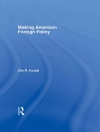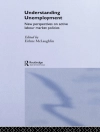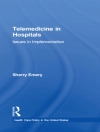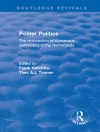While it is true that poverty, political instability, and economic under-performance continue to be major problems in Latin America, the region has made substantial progress in raising standards of living and overcoming military authoritarianism.
Latin American Politics reflects just how much the region has changed in the last two decades. Eduardo Alemán draws on contemporary research in comparative studies on institutions, elections, and public opinion to highlight the big questions that political scientists seek to answer today: What are the causes of political instability? What factors have influenced changes in economic and gender inequality? What are the implications of different political institutions for political outcomes?
Mục lục
List of Figures
List of Tables
Preface
Acknowledgments
About the Author
Part I – Background
Chapter 1: Colonial Legacy and the Post-Independence Period
Colonial Latin America
Independence and the Struggle for Political Order
Conclusions
Key Terms
Bibliographic Recommendations
Chapter 2: Political Regimes and Democratic Stability
What is Democracy?
Regime Transitions and Democratic Survival
Conclusions
Key Terms
Bibliographic Recommendations
Web Resources
Chapter 3: Guerrillas and Revolutions
Guerrilla Movements in Latin America
The Cuban Revolution
The Nicaraguan Revolution
Failed Revolutions in El Salvador and Guatemala
Guerrillas and the Peace Process in Colombia
Conclusions
Key Terms
Bibliographic Recommendations
Web Resources
Chapter 4: U.S.–Latin American Relations
The Cold War
The Aftermath of the Cold War
The Early 21st Century
Conclusions
Key Terms
Bibliographic Recommendations
Web Resources
Part II – Institutions
Chapter 5: Latin American Presidentialism
Presidentialism and Its Critique
Constitutional Variations in Latin American Presidentialism
Differences between U.S. and Latin American Presidentialism
Presidential Instability
Conclusions
Key Terms
Bibliographic Recommendations
Web Resources
Chapter 6: Legislatures in Latin America
The Legislative Branch
Organization
Legislative Voting Behavior
Conclusions
Key Terms
Bibliographic Recommendations
Chapter 7: Elections and Electoral Rules
Suffrage Extensions
Compulsory Voting
Rules for Electing Presidents
Rules for Electing Members of Congress
The Consequences of Congressional Electoral Rules
Conclusions
Key Terms
Bibliographic Recommendations
Web Resources
Chapter 8: The Judiciary
Judicial Independence
Judicial Authority
Perceptions of the Judiciary
Conclusions
Key Terms
Bibliographic Recommendations
Part III – Political Attitudes, Policies, and Outcomes
Chapter 9: Political Culture
Support for Democracy
Confidence in Institutions and Interpersonal Trust
Ideological Positions
Conclusions
Key Terms
Bibliographic Recommendations
Web Resources
Chapter 10: Corruption
Corruption
Efforts to Combat Corruption
Measuring Corruption
Corruption Scandals
Conclusions
Key Terms
Bibliographic Recommendations
Web Resources
Chapter 11: Civil Liberties and Press Freedom
What Are Civil Liberties?
The Right to Life and Liberty
Free Expression, Peaceful Assembly, and Religious Freedom
Press Freedom
Property Rights
Conclusions
Key Terms
Bibliographic Recommendations
Web Resources
Chapter 12: Income Inequality, Poverty, and the Gender Gap
Income Inequality
The Gender Gap
Conclusions
Key Terms
Bibliographic Recommendations
Web Resources
Glossary
Notes
Index
Giới thiệu về tác giả
Eduardo Alemán is an associate professor of political science at the University of Houston. Professor Alemán teaches courses in comparative politics, political institutions, and Latin American politics. He specializes in the comparative analysis of political institutions and the politics of Latin America. Professor Alemán has published numerous articles in such journals as World Politics, Comparative Politics, Legislative Studies Quarterly, Latin American Politics and Society, and Latin American Research Review. He is also the co-editor of the book, Legislative Institutions and Lawmaking in Latin America (2016), with George Tsebelis.












